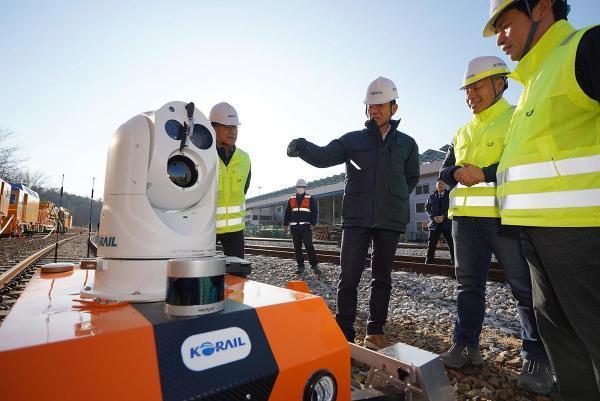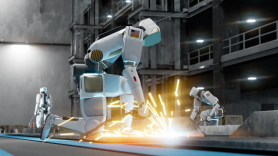
The robot incorporates an LTE communication network, a camera, and a laser Imaging detection and ranging (LiDAR) sensor. While navigating the track, it transmits real-time images and alerts railway workers when it detects cracks or obstacles that could affect train operations.
The Korea Railroad Corporation (KORAIL) said the AI robot is set to be commercialized in the first half of next year. The robot began its demonstration in the central city of Daejeon on December 4. "The self-driving monitoring robot that can swiftly and safely carry out inspection missions will help prevent railway accidents and increase work efficiency," KORAIL CEO Han Moon-hee said in a statement.
The public railway operator is also testing an autonomous robot that carries luggage to designated spots at a train station in Gwangmyeong, a southwestern satellite city of Seoul. Anyone can use the luggage delivery service through a mobile application.
According to a market research report released by state-funded Korea Institute of Science and Technology Information (KISTI), South Korea's service robot market is expected to reach $1.03 billion in 2026, up 186.1 percent from 2021. The global service robot market, which stood at $36.2 billion in 2021, is projected to skyrocket to $103.3 billion in 2026.
Copyright ⓒ Aju Press All rights reserved.




